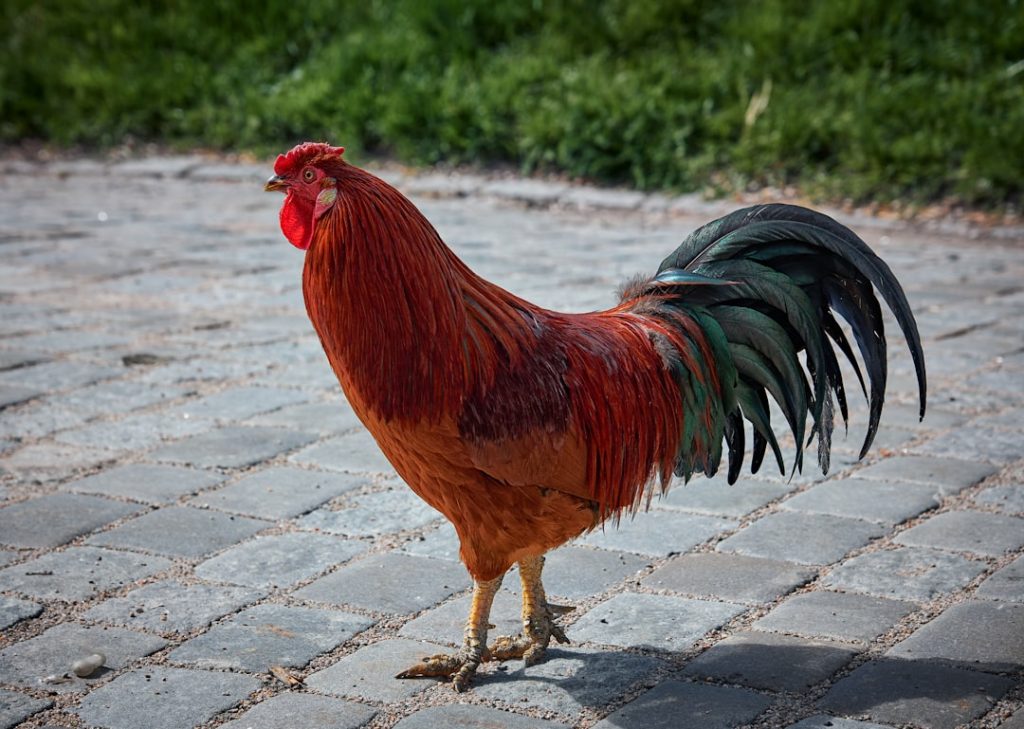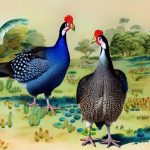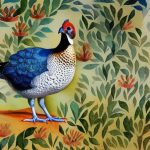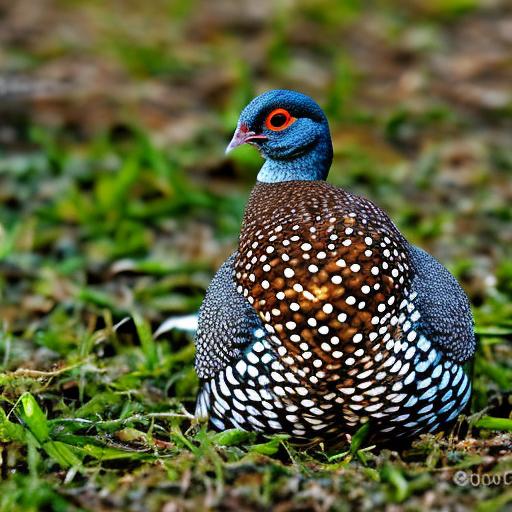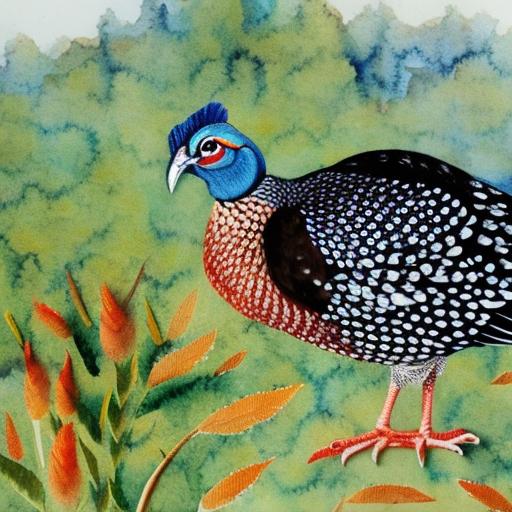Rare Guinea fowl breeds are a unique and fascinating group of birds that have been gaining attention in recent years. These breeds are known for their striking appearance, distinctive calls, and valuable contributions to pest control on farms and homesteads. While the common Guinea fowl is well-known and widely kept, there are several rare and lesser-known breeds that are worth exploring for their beauty and utility.
Rare Guinea fowl breeds come in a variety of colors and patterns, each with its own unique characteristics and traits. From the stunning Vulturine Guinea fowl with its regal appearance to the delicate and elegant Coral Blue Guinea fowl, these breeds offer a diverse range of options for poultry enthusiasts. In addition to their aesthetic appeal, rare Guinea fowl breeds are also valued for their ability to control insect populations, making them a valuable asset to any farm or garden. As interest in rare poultry breeds continues to grow, more and more people are discovering the charm and utility of these captivating birds.
Table of Contents
- 1 Characteristics and Physical Appearance of Rare Guinea Fowl Breeds
- 2 History and Origins of Rare Guinea Fowl Breeds
- 3 Conservation Efforts for Rare Guinea Fowl Breeds
- 4 Breeding and Rearing Rare Guinea Fowl Breeds
- 5 Challenges and Considerations in Keeping Rare Guinea Fowl Breeds
- 6 The Future of Rare Guinea Fowl Breeds
- 7 FAQs
Key Takeaways
- Rare Guinea fowl breeds are unique and valuable birds that are worth conserving and breeding.
- Rare Guinea fowl breeds come in a variety of colors and patterns, with distinct physical characteristics that set them apart from common breeds.
- The history and origins of rare Guinea fowl breeds can be traced back to specific regions and cultures, making them culturally significant.
- Conservation efforts for rare Guinea fowl breeds are crucial to ensure their survival and genetic diversity for future generations.
- Breeding and rearing rare Guinea fowl breeds require careful consideration of their specific needs and behaviors to ensure their well-being and successful reproduction.
Characteristics and Physical Appearance of Rare Guinea Fowl Breeds
Rare Guinea fowl breeds are known for their striking and distinctive appearance. One of the most notable features of these birds is their unique feather patterns and colors. The Vulturine Guinea fowl, for example, is adorned with bold black and white stripes, while the Coral Blue Guinea fowl boasts a stunning combination of blue and lavender hues. These birds also have a distinctive helmet-like crest on their heads, adding to their regal and exotic appearance.
In addition to their striking appearance, rare Guinea fowl breeds are also known for their loud and distinctive calls. Their vocalizations can range from a series of loud, raucous calls to softer, more melodic sounds, depending on the breed. This makes them not only visually captivating but also an auditory delight for those who appreciate the unique sounds of nature.
Furthermore, rare Guinea fowl breeds are valued for their ability to control insect populations. These birds are voracious insect eaters and can help keep pest populations in check on farms and homesteads. Their foraging habits make them an invaluable asset for organic pest control, reducing the need for chemical interventions.
History and Origins of Rare Guinea Fowl Breeds
The history and origins of rare Guinea fowl breeds can be traced back to their native habitat in sub-Saharan Africa. Guinea fowl have been domesticated for thousands of years, with evidence of their presence dating back to ancient Egypt. Over time, different breeds have emerged, each adapted to specific regions and climates.
The Vulturine Guinea fowl, for example, is native to East Africa, where it inhabits dry savannas and scrublands. Its striking appearance and regal bearing have made it a sought-after species for both ornamental and practical purposes. The Coral Blue Guinea fowl, on the other hand, hails from West Africa and is prized for its unique coloration and gentle disposition.
As these birds have been introduced to other parts of the world, they have become popular for their ornamental value as well as their utility in pest control. Their adaptability to different climates and their hardy nature have made them a favorite among poultry enthusiasts around the globe.
Conservation Efforts for Rare Guinea Fowl Breeds
Conservation efforts for rare Guinea fowl breeds are crucial to ensure the preservation of these unique and valuable birds. As with many rare poultry breeds, these birds face threats from habitat loss, predation, and competition from more common species. In response to these challenges, various organizations and individuals have taken steps to protect and conserve rare Guinea fowl breeds.
One important aspect of conservation efforts is the establishment of breeding programs aimed at maintaining genetic diversity within rare Guinea fowl populations. By carefully managing breeding pairs and ensuring that genetic lines are not lost, these programs help safeguard the future of these birds. Additionally, efforts to protect natural habitats and create suitable environments for Guinea fowl play a vital role in conservation.
Furthermore, education and outreach initiatives are essential for raising awareness about the value of rare Guinea fowl breeds and the threats they face. By educating the public about the importance of preserving these birds and their habitats, conservationists can garner support for their efforts and inspire others to take action.
Breeding and Rearing Rare Guinea Fowl Breeds
Breeding and rearing rare Guinea fowl breeds requires careful attention to their specific needs and behaviors. When selecting breeding pairs, it is important to consider genetic diversity and avoid inbreeding to maintain healthy populations. Additionally, providing suitable nesting sites and ensuring proper nutrition are essential for successful breeding.
Rearing young Guinea fowl also requires special considerations. Chicks should be provided with a warm and secure brooding area, as well as access to high-quality feed and clean water. As they grow, it is important to provide ample space for them to roam and forage, as well as protection from predators.
One unique aspect of rearing rare Guinea fowl breeds is their social nature. These birds thrive in small flocks and form strong bonds with their companions. Providing a suitable social environment is crucial for their well-being and overall development.
Challenges and Considerations in Keeping Rare Guinea Fowl Breeds
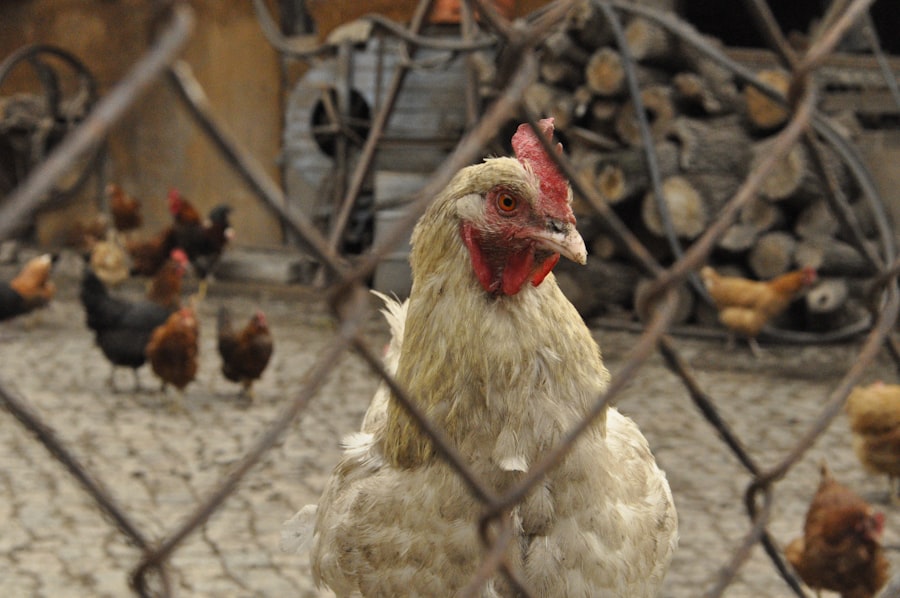
Keeping rare Guinea fowl breeds presents several challenges and considerations that potential owners should be aware of. One challenge is the availability of these birds, as they may be less common than other poultry species. Finding reputable breeders or sources for rare Guinea fowl can be more difficult, requiring diligent research and networking within the poultry community.
Another consideration is the specific care requirements of rare Guinea fowl breeds. These birds have unique needs in terms of housing, nutrition, and socialization that differ from more common poultry species. Understanding these requirements and being prepared to meet them is essential for successful ownership.
Additionally, predator protection is a significant consideration when keeping rare Guinea fowl breeds. These birds are vulnerable to predation from a variety of animals, including foxes, raccoons, and birds of prey. Providing secure housing and vigilant predator control measures are crucial for keeping them safe.
The Future of Rare Guinea Fowl Breeds
The future of rare Guinea fowl breeds holds both challenges and opportunities. As interest in rare poultry breeds continues to grow, there is an increasing demand for these unique birds among poultry enthusiasts. This presents an opportunity to raise awareness about the value of rare Guinea fowl breeds and promote their conservation.
At the same time, ongoing conservation efforts will be crucial for ensuring the long-term survival of these birds. By supporting breeding programs, habitat protection initiatives, and education efforts, individuals can contribute to the preservation of rare Guinea fowl breeds for future generations.
In conclusion, rare Guinea fowl breeds are a captivating and valuable group of birds that deserve attention and protection. Their striking appearance, distinctive calls, and pest control abilities make them a valuable addition to any farm or homestead. By understanding their history, characteristics, conservation needs, and care requirements, individuals can play a role in safeguarding the future of these remarkable birds.
If you’re interested in rare guinea fowl breeds, you might also want to explore the fascinating world of quails. Poultry Wizard has an informative article on what vegetables quails eat, which can provide valuable insights into the dietary needs of these small birds. Check out the article here to learn more about keeping quails and their nutritional requirements.
FAQs
What are rare guinea fowl breeds?
Rare guinea fowl breeds are varieties of guinea fowl that are not commonly found and are considered to be less common than the more popular breeds such as the Helmeted Guinea Fowl.
What are some examples of rare guinea fowl breeds?
Examples of rare guinea fowl breeds include the White Guinea Fowl, Lavender Guinea Fowl, and Coral Blue Guinea Fowl. These breeds are less common and may have unique colorations or markings.
Where can rare guinea fowl breeds be found?
Rare guinea fowl breeds can be found through specialty breeders, poultry shows, and online poultry forums. They may not be as readily available as more common breeds and may require some research to locate.
What are the characteristics of rare guinea fowl breeds?
Rare guinea fowl breeds may have unique color patterns, such as lavender or white feathers, and may exhibit different behaviors or traits compared to more common breeds. They are often sought after for their distinct appearance.
Are rare guinea fowl breeds suitable for backyard poultry keeping?
Rare guinea fowl breeds can be suitable for backyard poultry keeping, but it’s important to research their specific care requirements and ensure that they are compatible with the existing flock. Some rare breeds may have specific needs that differ from more common guinea fowl breeds.
Meet Walter, the feathered-friend fanatic of Florida! Nestled in the sunshine state, Walter struts through life with his feathered companions, clucking his way to happiness. With a coop that’s fancier than a five-star hotel, he’s the Don Juan of the chicken world. When he’s not teaching his hens to do the cha-cha, you’ll find him in a heated debate with his prized rooster, Sir Clucks-a-Lot. Walter’s poultry passion is no yolk; he’s the sunny-side-up guy you never knew you needed in your flock of friends!

